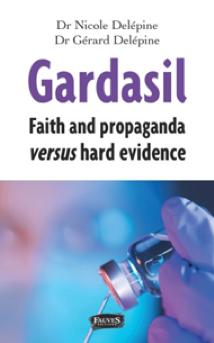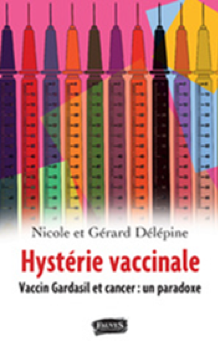Advisory Board
Dr Liz Evans MA(Cantab), MBBS(Hons), DRCOG

Dr Elizabeth Evans was formerly a general practitioner and then moved into the field of complementary medicine. For the last 12 years she has worked part-time in her own private practice, treating patients with a holistic nutritional and energy medicine approach.
She is a co-founder and director of the UK Medical Freedom Alliance – formed in October 2020, we are a group of healthcare professionals, scientists and advocates working to ensure that people’s rights to medical freedom, informed consent and bodily autonomy, are upheld in all circumstances. It has also been a frontline member of HART since its inception ,as well as a member of the Children’s Covid Vaccine Advisory Council (CCVAC) led by Dr Ros Jones. The CCVAC has written numerous letters since May 2021 (to the MHRA, the JCVI and now to the Prime Minister) expressing serious concerns about the administration of Covid vaccines to healthy children.
Dr Alexandra Henrion-Caude

Professor Caude is Director of Research at the French National Institute of Health (INSERM) and founder of Simplissima, an international research institute. Her research, which has an international reputation with 150 publications, has focused for over 20 years on how environmental indicators can be translated into genetic information. More recently, her interests have expanded to include consideration of the enormous growth of non-coding RNA into regulatory circuits, and in particular the identification of variants that might influence genetic diseases.
Dr Caude’s first mentor was Professor Sir Alec Jeffreys, with whom she learned the techniques of DNA fingerprinting. She obtained her PhD in genetics in 1999 from the University of Paris VII under the supervision of Professor Axel Kahn. She did her post-doctorate at Harvard Medical School, in the Joslin Diabetes Center, and was appointed by Inserm in 1998, where she is currently Director of Research. Together with Professor Annick Clement, she founded the first paediatric pneumology research unit at Trousseau Hospital in Paris. She then founded a research group on genetic diseases in children in Professor Arnold Munnich’s laboratory at the Necker Hospital in Paris and was director of GenAtlas, a public scientific website.
In 2013, she received the Eisenhower Fellowship award. She was featured on “The Science for you to solve” programme in Seoul, Korea, along with four Nobel Laureates, and was invited to present her work on non-coding RNA at the Keystone Symposium and at the Royal Society. She holds three patents, including the US patent for mitomiRs for mitochondrial genome adaptation, and has a partnership with Miltenyi Biotec for research and development in mitochondrial preparations.
Philipp Kruse

Philipp Kruse is a Swiss lawyer. After a career in commercial and constitutional law, he is now tackling the challenges posed by the change in direction that Switzerland, like many other nations, has taken. He has litigated several cases involving ordinances affecting children, as well as cases dealing with constitutional controversies. He also leads numerous activist support initiatives.
John Stone

John Stone is the father of a child with autism, a vaccine safety campaigner and the UK and European editor of AgeofAutism.com since 2010…. John has focused on the misrepresentation of events and science, related to the autism crisis and vaccines. He has contributed extensively to the debate on vaccine safety and industry ethics in the UK and America for two decades.
Vera Sharav, author and founder of the Alliance for Human Research Protection

Vera Sharav is a public human rights advocate and founder and president of the Alliance for Human Research Protection (AHRP) , a public protection information and watchdog organisation that aims to break down the walls of secrecy in biomedical research and introduce accountability in the field. AHRP’s infomails have a wide following: they are read by doctors and scientists, public health officials, journalists, lawyers and patient protection organisations.
Her successes as a consultant include: the suspension of the Environmental Protection Agency’s (EPA) pesticide experiment (CHEERS) on children; the complaint led to two federal investigations into the abuse of foster children as guinea pigs in experimental AIDS drug and vaccine trials; the suspension of the smallpox vaccine on children; the suspension of the so-called “violence prediction” experiment, in which 6- to 11-year-old boys of colour in New York were exposed to fenfluramine; the opening of a public debate on the ethics of experiments that induce relapse in patients with schizophrenia. She organised the contact of families and victims of unethical research who testified with her before the National Bioethics Advisory Committee (NBAC) on unethical experiments on mentally retarded psychiatric patients; this testimony led to an award-winning column in the Boston Globe entitled “Doing Harm: Research on the Mentally Ill”, which eventually led to the termination of 29 clinical trials at the National Institute of Mental Health (1999).
Ms Sharav was a member of the National Human Research Protection Advisory Committee’s Children’s Workgroup, the only dissenter to speak out against the expanded instrumentalisation of children in high-risk medical experiments. She has testified before public policy advisory bodies, including the Institute of Medicine – against pesticide testing on humans; against drug research in prisons; numerous FDA hearings, against the abuse of psychotropic drugs for children.
As a speaker, she has been invited to speak at various professional and academic forums: World Federation of Science Journalists, London; National Academy of Sciences Policy Fellow Program and National Public Health Association on screening for mental illness; Consumers Institute for Medicines and Health, Stockholm – re: America’s Drug Overtreated Children; University of Columbia; NY Hospital, Cornell; US Military Medical Ethics Forum; University of Texas.
Dr Nicole Delépine

A doctor of medicine, paediatrician and oncologist, Nicole Delepine is married to Gérard Delépine, a physician, and is the mother of 2 children. She was head of the adolescent and young adult cancer department at the Raymond Poincaré Hospital in Garches (92) until its closure. Nicole Delépine works full time as a doctor in an acute hospital and has been fighting for 20 years to improve the care of cancer patients. She is the author of about a hundred original articles on the subject and has given an average of 15 lectures a year in recent years, 2/3 of which have been presented at international conferences. The results of her work have been validated abroad and inspire international therapeutic protocols. Nicole Delépine enjoys an international reputation in the field of bone and soft tissue tumours and is very well known.
Professionally, Nicole Delépine has always been committed to the democratisation of the hospital, ensuring that the patient is at the centre of interest for doctors and administrators. Nicole Delépine’s stirring views have earned her the enmity of some of her colleagues, who recently decided to close down her department, which was one of the most active in the hospital. It was only thanks to the actions of parents’ associations such as A.M.E.T.I.S.T., repeated interventions by MPs from the Paris region and reports by numerous journalists that the decision to transfer her to the Raymond Poincaré hospital in Garches (92) was wrested from the AP-HP administration. She is a member of the advisory board of the Alliance for Human Research Protection.
Dr Gérard Delépine

Oncologist, orthopaedic surgeon and statistician at the Raymond Poincaré Hospital in Paris. Since the 1980s, Dr Gérard Delépine has been developing innovative surgical methods for the treatment of bone tumours and soft tissue. The independent and creative medical team of the Paediatric Oncology Unit (POU) enjoys a highly recognised international reputation for its combination of advanced, individualised chemotherapy and conservative surgery. Over the decades, the POU has been able to resist pharmaceutically influenced, protocolised cancer treatment practices thanks to a supportive, activist parents’ association, several interventions by politicians, numerous reports by journalists and the support of numerous French and foreign doctors. He is a member of the advisory board of the Alliance for Human Research Protection.
French couple Nicole and Gérard Delépine have been fighting the French health bureaucracy for 30 years on behalf of cancer patients and treating physicians who have been sidelined by government bureaucratic cancer treatment protocols influenced by pharmaceutical corporate interests. Drs. Delépine fight to improve treatment options and care for cancer patients, taking into account not only the response of the tumour alone, but the response of the whole body to drugs and prescribing individual dose adjustments of chemotherapies as needed.
Dr Delépine is a staunch critic of state-dictated medical “tyranny” in France, where regional health departments dictate cancer treatment protocols formulated to drive up profits for the cancer treatment industry; protocols and screening campaigns that have been proven to harm patients. The Canadian 25-year follow-up study on breast cancer mortality published in the BMJ is cited as an example. The study shows that breast screening did not reduce mortality rates – as commonly claimed – but led to overdiagnosis of breast cancer and thus unnecessary surgery.
The most recent research focus of Delépine doctors in the field of cancer is cervical cancer and screening and the so-called preventive vaccine.
In Hystérie Vaccinale (Vaccine Hysteria) (2018), they explain that cervical cancer is rare and 80% preventable in higher income countries where PAP smears are used to routinely screen for cervical cancer. In the USA, the death rate from cervical cancer is less than 1%-0.7%. There is no cervical cancer emergency.
In Gardasil: Faith and Propaganda versus Hard Evidence (2019), Drs Delépine report the results of their analysis of global cervical cancer evidence as documented in government registries of Australia, the UK, Norway, Sweden and France. They analysed data before and after vaccination with the human papillomavirus (HPV) vaccine, Gardasil, manufactured by GlaxoSmithKline. Gardasil was widely and aggressively promoted as a cancer prevention vaccine. Doctors Nicole and Gérard Delépine compared cervical cancer rates in the period before vaccination – from 1989 to 2007 – and cervical cancer rates since vaccination with Gardasil. They reported their evidence-based, deeply troubling findings: During the era of Pap smear screening (1989-2007), the incidence of cervical cancer declined by 50%. Since 2007, after the approval of Gardasil, “a trend reversal” has been observed in all countries with high vaccination coverage (Australia, UK, Norway, Sweden). Their analysis of government databases shows a paradoxical increase in cancer incidence occurring 3 to 5 years after the vaccination campaign. This increase almost exclusively affects the most vaccinated age groups.



